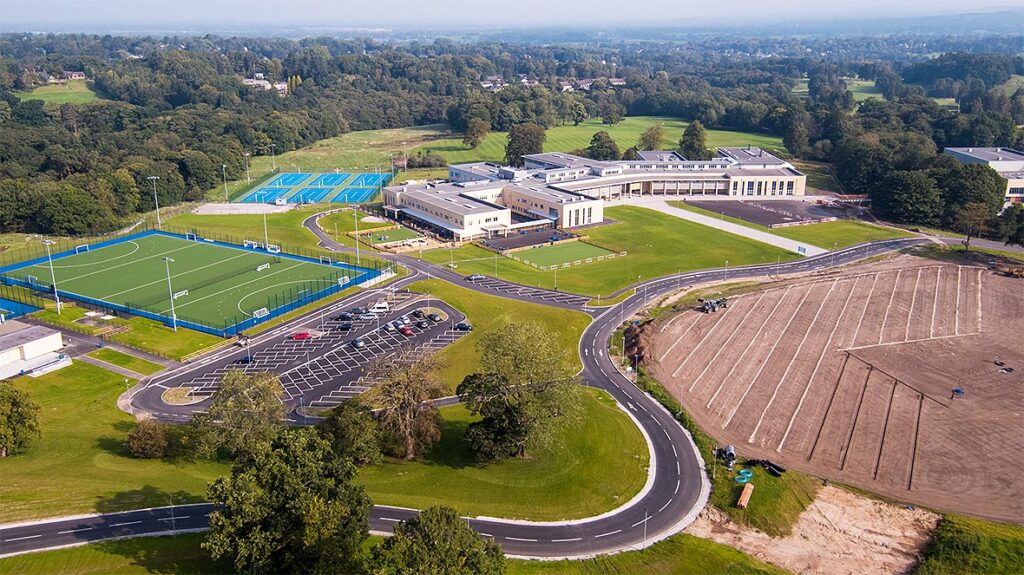Radical thinking over how school building projects deliver social value is needed to overcome the effects of falling birth rates and changing demographics.
Education infrastructure specialist Pick Everard says now is the time to ensure school assets add value to the communities they serve beyond lesson timetables. Ahead of the Education Estates conference in October, the consultancy is highlighting creative ways for schools to unlock their potential, including creating more capacity for SEND provision.
It also believes developing ‘meanwhile uses’ and examining how education spaces are utilised at the design stage can support regeneration and economic growth in the longer term.
The idea stems from the ‘asset-based community development’ (ABCD) approach to delivering improvements in a particular neighbourhood. Building a system where more students with SEND can attend mainstream schools in their own communities is also central to forthcoming education reforms.
 Community Focus: King’s School in Macclesfield was built with community use in mind. The sports centre features a six-court sports hall, swimming pool, cricket centre, rugby pitches, and netball courts.
Community Focus: King’s School in Macclesfield was built with community use in mind. The sports centre features a six-court sports hall, swimming pool, cricket centre, rugby pitches, and netball courts.
Director of architecture Kieran Dyer said identifying the strengths, talents and physical resources within a school, and mapping wider collaborations, can be a powerful tool in engaging young people in education and connecting them to the wider community.
He said: “Educational institutions are integral to growth, whether it is inspiring the next generation of innovators and entrepreneurs, or in the delivery of physical assets, such as gyms and theatres, schools, colleges and universities. These have always had a focus on enhancing skills and supporting economic development.
“But there is a risk that without a fresh, radical approach to framing schools as community assets we are missing out on opportunities to really drive positive and lasting sustainable regeneration.
“How is the space within schools and colleges used? Could it serve a healthcare or wellbeing purpose? Could it be used to enhance the local economy? Could the technical expertise of teachers help to fill a skills gap in the wider community? At a time when other public services are looking to rationalise their estates as budgets are squeezed, could schools become neighbourhood hubs where the likes of council and other advisory services can be accessed?
Education can be repositioned at the heart of regeneration not just as a place to learn but as a platform for thriving communities
“The key is recognising that value can be added, and place-based projects can progress, by utilising the strengths and assets that already exist. This increases a community’s resilience by reducing its reliance on external sources.”
Local authorities have responsibility for ensuring there are sufficient school places in their areas. However the latest figures show there are 9,032,426 pupils in schools in England – a drop of 59,600 compared to 2024.
Just as councils can consider expanding and remodelling existing schools to increase capacity, repurposing underused estates is an option that Kieran believes can strongly benefit communities until population numbers recover. It’s a highly topical issue as education leaders await the publication of the Government’s Schools White Paper this autumn, which is likely to focus on the creation of more SEND places in mainstream and specialist schools.
Kieran urged local authorities to rethink the role of schools in society, extending their purpose beyond teaching to act as anchors for community life. He called for more flexible and adaptive thinking that repurposes existing assets by their potential to support regeneration, public services and community wellbeing.
“We need to join the dots,” he said. “Education can be repositioned at the heart of regeneration not just as a place to learn but as a platform for thriving communities.
“The chance to realign educational assets with public services and community development is a time-limited opportunity. Being flexible and adaptive in our thinking now can help to meet the shifting needs of our communities in the coming decades.”
Pick Everard will be attending the Education Estates conference at Manchester Central on October 14 and 15.